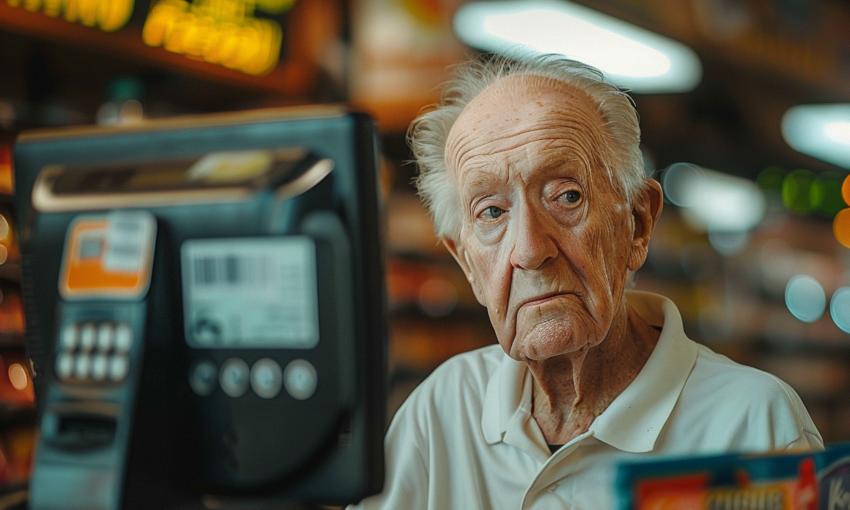My grandpa, a kind-hearted man in his late seventies, had recently experienced the heartbreak of losing my grandma. To cope with the solitude and find purpose, he decided to take a part-time job as a cashier at our local grocery store. I was initially concerned about him working at his age, but I admired his determination to stay active and connected with others.
To ensure he was doing okay, I made it a habit to drop by the store unexpectedly. Most of the time, the store was quiet, and Grandpa would greet me with his usual warm smile. However, one particular day, as I walked into the store, I noticed a commotion at the cash register.
The store was busier than usual, and I saw Grandpa struggling with a line of customers. But what caught my attention was the customer at the front of the line—a woman in her forties, dressed in expensive clothing and with a scowl on her face. Her attitude was clear even from a distance: she was impatient and irritable.
As I got closer, I overheard her berating Grandpa in a tone that made my blood boil.
“…WHY ARE YOU WORKING HERE ANYWAY?! PEOPLE YOUR AGE SHOULD STAY HOME INSTEAD OF HOLDING UP THE LINE. HURRY UP!”
My heart ached as I saw Grandpa’s face fall, his hands trembling slightly as he fumbled with the register. He was clearly doing his best, but the woman’s hostility was uncalled for. I was furious but knew that confronting her directly might jeopardize Grandpa’s job, which was his lifeline to the outside world.
Instead, I decided to handle the situation with a different approach. I walked up to the woman with a calm but firm demeanor.
“Excuse me, ma’am,” I said, “I couldn’t help but overhear your comments. My grandpa is doing the best he can, and he’s here because he wants to stay active and engaged. He’s been through a lot recently, and he deserves respect and patience, just like anyone else.”
The woman turned to look at me, surprise flashing in her eyes. “Who are you to tell me how to speak to him?” she snapped.
“I’m his granddaughter,” I said, keeping my voice steady. “And I think you should consider that there’s more to people than just their age. Everyone has their own struggles and reasons for being where they are. Maybe instead of being rude, you could show a little kindness.”
The woman’s face reddened, and for a moment, she seemed at a loss for words. I could see her demeanor shift as she realized the impact of her words and the sincerity behind mine.
“Fine,” she muttered, turning back to the register. “Just hurry it up.”
I gave Grandpa a reassuring smile before stepping aside. I stayed in the store to keep an eye on the situation, and the woman’s attitude did a complete turnaround. She was less abrasive and more polite for the rest of her transaction.
When she left, I approached Grandpa and gave him a comforting hug. “How are you doing, Grandpa?”
He looked at me with a mix of gratitude and relief. “I’m okay, dear. Thank you for stepping in. I didn’t want to cause any trouble.”
“You did nothing wrong,” I assured him. “Some people just need a reminder that kindness matters.”
As I left the store that day, I felt a sense of satisfaction. It wasn’t just about standing up for my grandpa but also about reinforcing the importance of empathy and respect. Sometimes, people need a reality check to understand the impact of their actions.
The incident became a lesson for both the rude customer and for me—one that underscored the importance of treating everyone with dignity, regardless of their circumstances. For Grandpa, it was a reminder that he was not alone, and for me, it was a powerful testament to the value of standing up for those we love.
